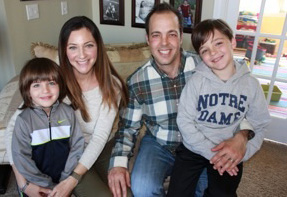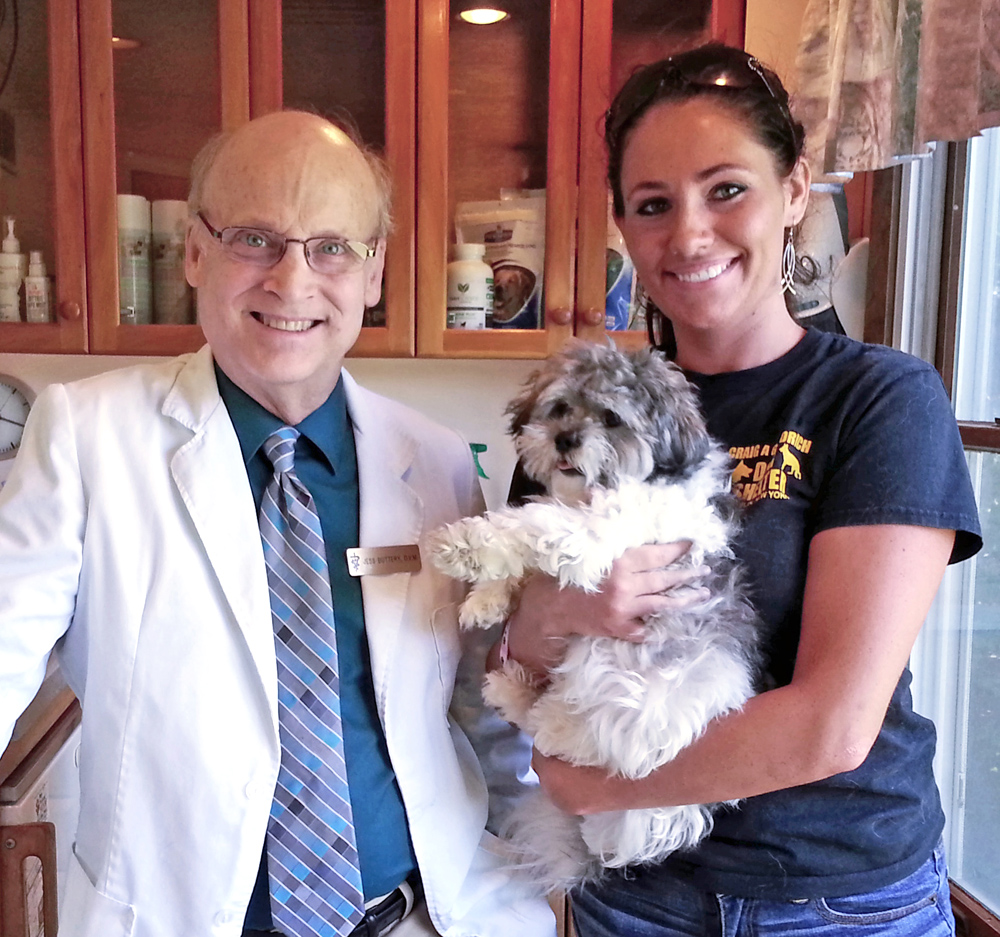Living a healthy life with a serious illness

Family says early diagnosis is key to managing T1D
Hudson Proia is an energetic, friendly seven-year-old boy who likes to play tag with his friends, ride bikes and play basketball. Looking at Hudson, one would never guess that this Spencerport child has an autoimmune disease called Type 1 Diabetes (T1D).
Hudson was diagnosed with T1D when he was 18 months old. His parents, Joe and Amanda, noticed his voracious thirst and how they were constantly changing his diapers.
“Hudson was drinking large amounts of fluids and my dad noticed that he looked withdrawn,” Amanda. “We just could not keep him dry,” Joe added.
Amanda mentioned their concerns to their pediatrician. Various tests were run; blood and urine test results noted some abnormalities.
“The tests showed unusually high sugar readings in both his blood and urine. The doctor suspected diabetes,” Amanda explained. “He told me to go home, pack a bag and get to Strong Hospital right away.”
Tests in the emergency room confirmed the diagnosis. This family spent three days at the hospital as a team of doctors, nurses and a dietician educated Joe and Amanda about this disease. A plan was developed on how to care for Hudson.
“I took prescriptions to the pharmacy to get filled and was given bags and bags of insulin and hundreds of needles. This was beyond overwhelming when we realized that we needed to administer this medication to keep our son alive,” Joe explained.
Testing and administering Hudson’s insulin was a learned process for this couple.
“It is very mathematical and based upon his carbohydrate count. There is an equation for everything he eats,” Joe explained. Amanda added, “We portion and tally everything he eats, divide by the ratio and figure the amount of insulin. We prepare and administer the injection.”
At 22 months, Hudson was fitted with an insulin pump. This device is a small, programmable, computerized catheter that is taped to his body that calculates and releases rapid-acting insulin between meals and overnight. While this device has helped with administering frequent injections, the family lives a regimented routine. Meals are well balanced and carefully planned. Hudson is tested multiple times while at school and another seven or more times both before and after school. A rapid blood test indicates where his insulin levels are. Bolus injections are administered after every meal, even at school. An alarm in Joe and Amanda’s bedroom alerts them if Hudson’s insulin level is low and if a bolus is needed. Spikes and drops in his insulin have occurred without any reason and these emergency situations required immediate action.
“I sleep with one eye open,” Joe said. “Every day, we hope and pray that nothing happens,” Amanda said.
As Hudson’s primary care giver, Amanda is on call at all times. They rely upon two trusted family members as alternate caregivers when the need arises. But the couple works together to make family life as normal as possible. Play dates are usually held at the Proia’s home. Hudson plays baseball, basketball and the family skis together.
“We don’t limit what he can do. We work to help him own up to his responsibility for his health,” Joe explained.
The couple also has another son, Anderson, who is four years old. As of now, Anderson has not shown any signs of having T1D.
“I am nervous to have Anderson tested. It’s not uncommon for siblings to have this same disease,” Amanda said.
Living with this illness is a challenge but this couple has learned that advocacy plays an important role is keeping Hudson well. Amanda is in constant communication with Hudson’s teacher, principal and school nurse at St. Lawrence School. She volunteers in his classroom and attends class field trips. Amanda and Joe serve on the board and numerous committees for the local chapter of the Juvenile Diabetes Research Foundation.
“Early diagnosis is key to managing this disease. We need to raise awareness about T1D. There is no cure but we have two research programs happening at the University of Rochester,” Joe explained.
Hudson understands his disease and hopes others do, too. He recently gathered some diabetes materials and information and made a presentation to his classmates.
“I want to help them stay healthy! I want my friends to understand what I go through, why I have to visit the nurse and watch what I eat,” he said.
Walk for a cure
Type 1 Diabetes (T1D) is a lifelong disease that can occur at any age. While many people diagnosed with T1D live healthy lives, it is important to know that there is no cure. Research and awareness are vital to finding new treatments and eliminating this disease.
The Rochester chapter of the Juvenile Diabetes Research Foundation will host the JDRF Walk to Cure Diabetes on Sunday, May 17 at Rochester Institute of Technology. Registration begins at 9 a.m. and the one-mile walk begins at 10 a.m. To register as a walker, form a team or for information, visit the website at walk.jdrf.org, or contact Lisa Swindon at 585-546-1390 or lswindon@jdrf.org.



